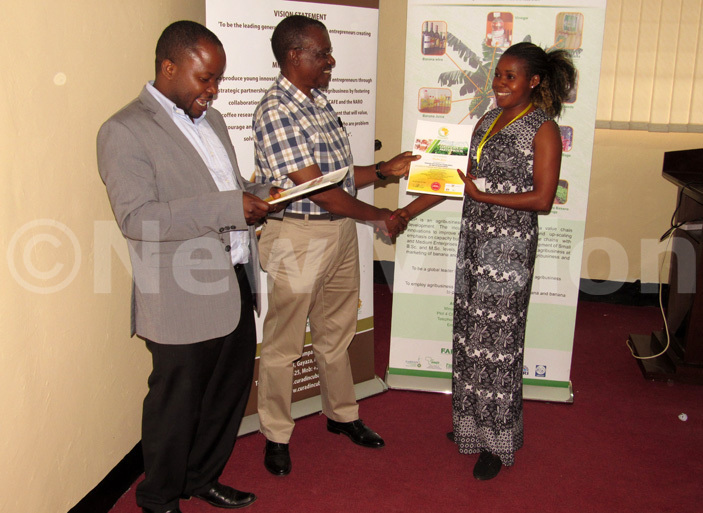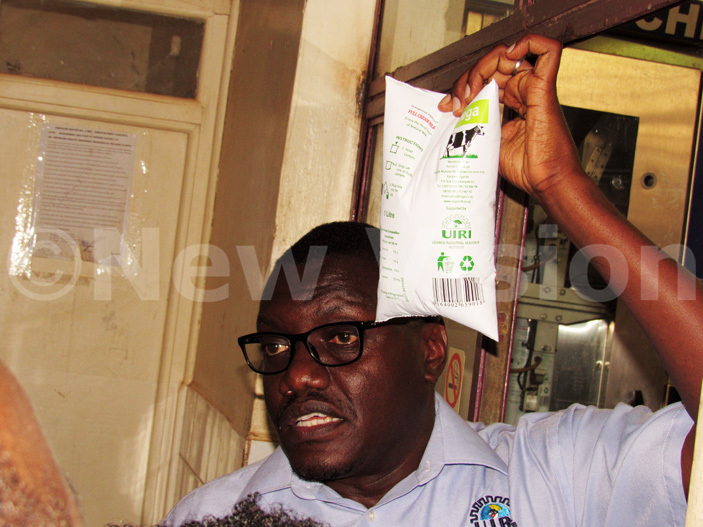African incubator managers trained on key business skills
Sep 15, 2016
Agribusiness incubators, according to Apollo Segawa, the Managing Director at CURAD are facilities that help those with ideas to develop them into real businesses that are sustainable

PIC: Some of the participants at the closure of the training
The quality of the chicks from a hen depends largely on the incubation process.
This is part of the reason why current and prospective managers of agribusiness incubators have been meeting in Kabanyolo, Gayaza from Monday until yesterday, convened by the African Agribusiness Incubators Network (AAIN).
The training which was hosted by the Consortium for University Responsiveness to Agribusiness Development (CURAD) at the Makerere University Agricultural Research Institute attracted about 35 participants from Ghana, Nigeria, Zambia, Kenya and Uganda.
The incubator model
Agribusiness incubators, according to Apollo Segawa, the Managing Director at CURAD are facilities that help those with ideas to develop them into real businesses that are sustainable.
This model, he says, is the key to increasing job creation and sustainability of enterprises especially for the youth.
"Incubators offer business development services and the right facilities for such enterprises to start and take off," he says.
Segawa pointed to the training as a means of increasing awareness about the running of incubators like CURAD.
 One of the participants receives a certificate
One of the participants receives a certificate
Exposure to practice
As part of the training, the participants toured facilities of the Uganda Industrial Research Institute (UIRI) which is a government-supported incubator, two selected incubatees (entrepreneurs supported by the incubators) of AfriBanana Products Limited which is an incubator that focusses on the banana value chain and the Coffee Entrepreneurship Bureau at CURAD.
At UIRI, they paid a courtesy call to Prof Charles Kwesiga the executive director who advised them to work towards building lasting incubators.
"We have resources and the prospects that are very good. But we need to start initiatives that are sustainable," he said.
This and the rest of the training according to AAIN's Mary Njeri Thiong'o, was also aimed at building the potential of participants to train others in the same field.
 UIRI's Denis Dokoria took participants through basics of standards
UIRI's Denis Dokoria took participants through basics of standards
Focus on quality, not the numbers
Kimani Muturi the Managing Director at AfriBanana, called on participants to not only look at the number of incubatees but the output and impact that they can have on the communities through the incubatees.
For CURAD's Segawa, this kind of training is key in grooming informed managers for the incubators.
"There is growing interest in incubation from both government and development partners. We therefore want to create a chain of people with expertise in this area and pass on relevant skills to them," he says.
Segawa was joined by Prof. Samuel Kyamanywa the Principal Investigator at CURAD in handing out certificates to the participants yesterday, officially closing the three-day training.
 Prof. Samuel Kyamanywa addresses participants
Prof. Samuel Kyamanywa addresses participants
